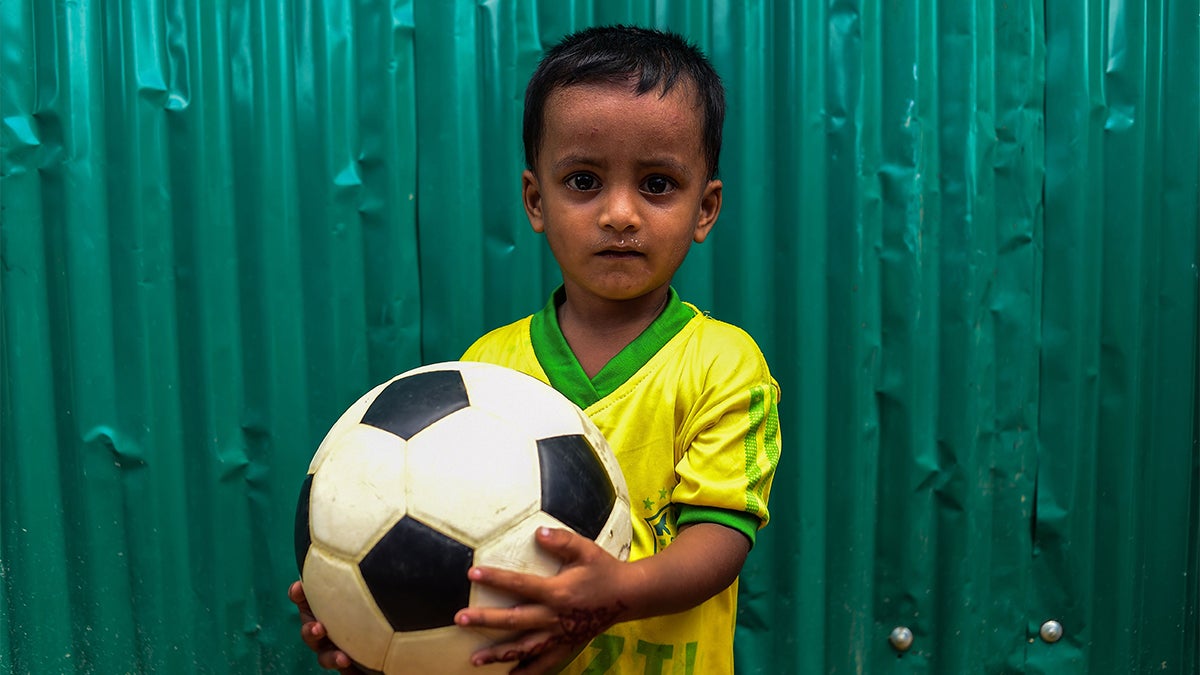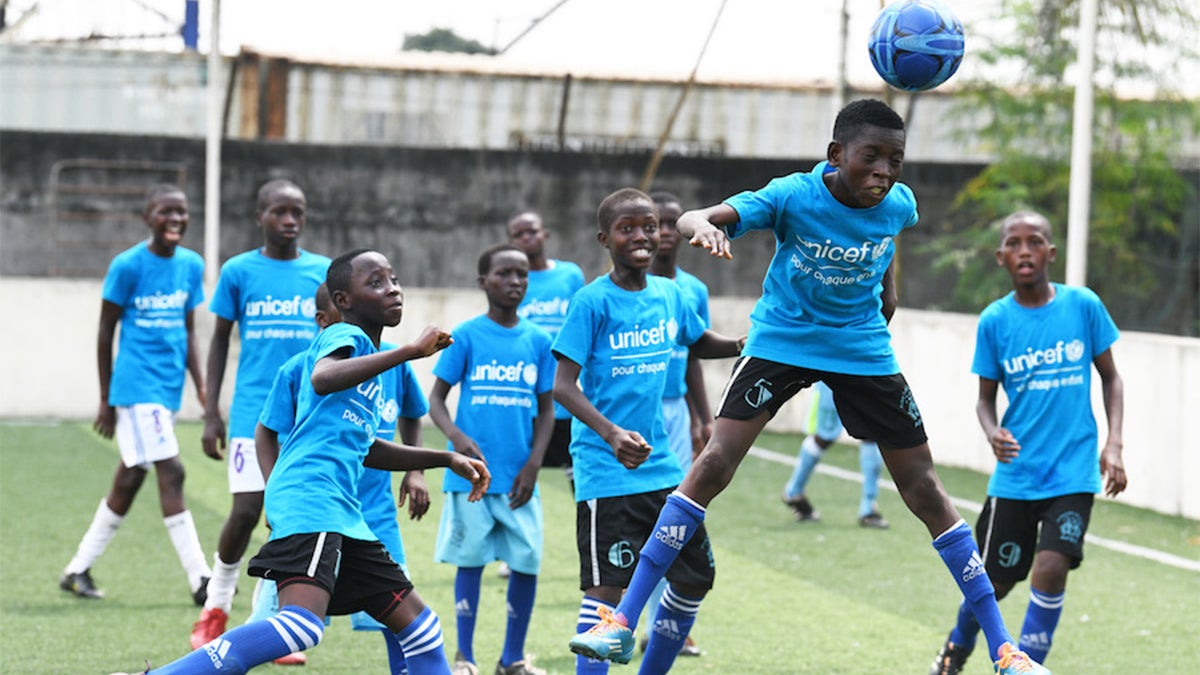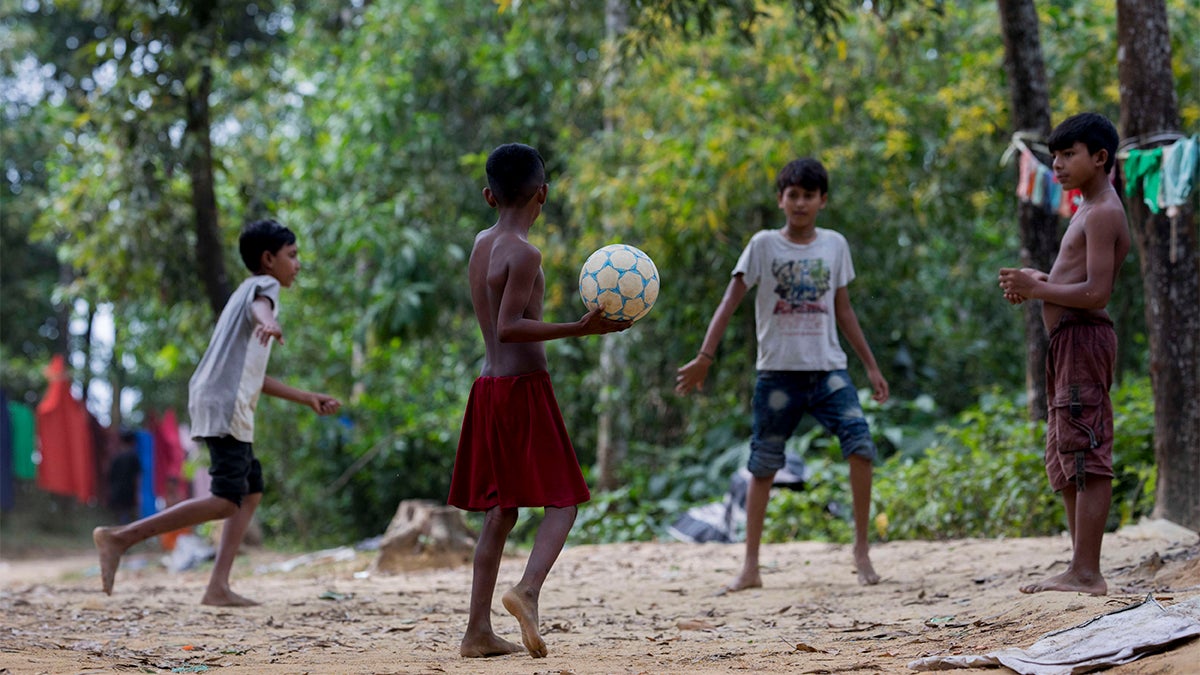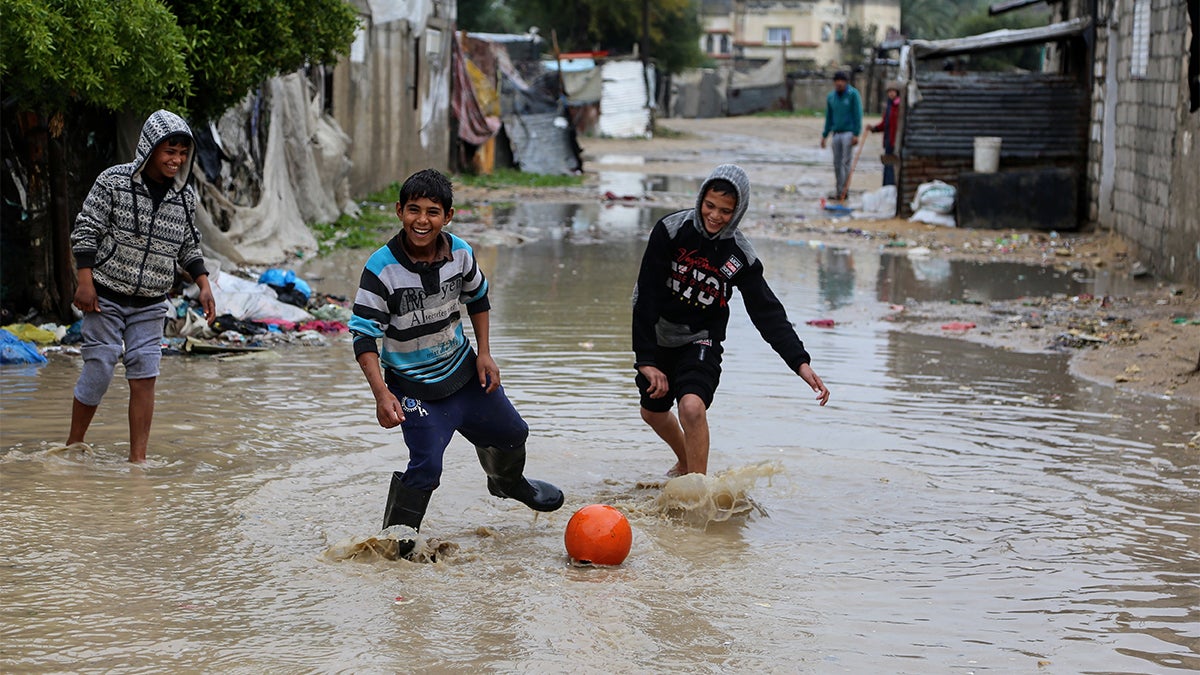Sport provides measure of normality in refugee camps

In a refugee camp, a soccer game might benefit the players in ways that extend far beyond exercise and fun. Sports can improve refugees’ well-being, empower them, create opportunities for education and socialization, and improve relations between refugees and their host communities.

From soccer in Ethiopia and Switzerland, boxing and cricket in Germany, to judo in Turkey and Zambia, sports are a vital part of programs for refugees around the world. In 2017, the International Olympic Committee (IOC) established the Olympic Refuge Foundation to support the protection, development and empowerment of children and youth in vulnerable situations through sport.
Sports have always been present in refugee camps — if no one had a ball, people would make one out of clothing or whatever else they could find, said UN Refugee Agency (UNHCR) spokesperson Chris Boian. UNHCR works with partner organizations in more than 45 countries to provide sport programs in refugee camps and in urban areas where refugees live.
Sports benefit participants on many levels.
“First of all, sports brings people together. It is fun! People want to be involved. So it has strong unifying power,” Boian said. “Sports encourages them to work together toward a shared goal. The collective energy of sports can be therapeutic, transformative and healing.”
Kids need to play
“More than half of the refugees in the world are children under 18,” Boian pointed out. “The average length of displacement for many young refugees is really their entire childhood. And sports is a part of childhood for many people.”
Play is a critical element of any child's brain development, and sports give refugee children a physical release of endorphins that can help cope with trauma as well as a sense of belonging after being uprooted from their homes, according to UNICEF USA, which offers sport programs for refugees. These programs are grounded in the belief that every child has the right to play in a safe, healthy environment.

In partnership with the Youri Djorkaeff Foundation, UNICEF held a soccer training camp for refugee and migrant children in Athens in 2018. The camp taught sportsmanship, cooperation, leadership and teamwork; fostered social inclusion; and helped integrate refugees and host communities. The camp included daily training sessions and a series of educational and recreational activities.
Djorkaeff was a member of the 1998 French World Cup champion team and a longtime professional soccer player. His foundation uses football as a means to empower disadvantaged children.
“Through our partnership with UNICEF, we want to reach out to vulnerable refugee youths, make them know they matter and help them to rise and dream again,” Djorkaeff said in a UNICEF press release announcing the camp.
“Sport and play provide an opportunity for children who are suffering through trauma the chance to feel normal. To have fun. To feel like they are part of a team,” said Carin Zaleski, co-national director of Right To Play USA. Right To Play works in 52 refugee camps around the world, offering children positive learning environments that incorporate sports and other types of play.
“Play empowers them by teaching them skills like trust, problem solving, collaboration, communication, leadership, empathy, self-expression, confidence, teamwork, and so much more,” Zaleski said, adding that these skills support kids’ physical, intellectual and social development.
The opportunity to play is especially important for girls. “Girls that have been forcibly displaced are in a uniquely vulnerable situation in many cases,” Boian said. UNHCR works to help them rebuild their lives and improve their prospects for the future. UNHCR and its partners offer information about “the dangers of sexual and gender-based violence, what to do in situations where they feel at risk, and how to talk about these things,” he said.
Being with peers in similar circumstances empowers girls to identify the risks they face, to know what their options are and to feel confident about exercising those options. “Participation in any kind of structured, group activity like sports gives young refugees opportunities to interact with their peers the same way all children do, and, in the process, build social connections and reduce risks of behaviors not conducive their own well-being,” Boian said.

When people come together for sports, they talk — they develop relationships and get to know each other, Boian noted. “That facilitates discussion about any number of issues that warrant discussion.” The organizations working with refugees can bring issues such as child protection and safety into the discussion.
For example, UNHCR has been working with the IOC to enhance the protection of refugee youth in six refugee camps in Rwanda through sports. In the Za’atari refugee camp in Jordan, UNHCR’s partnership with Peace and Sport uses sport as a tool for peace.
For some people, the assertion that sports save lives is not an exaggeration.
The Right To Play USA’s website tells the story of a man named Malual to tout the success of its efforts.
Malual fled from Sudan to Uganda twice, as a child and young adult, and credits Right To Play programs with saving him from becoming a child soldier. The camp he lived in housed people from various tribes who spoke different languages and couldn’t communicate with each other, so tensions were high. The children played peace-building, cooperative games with a blue ball. “When we played with the blue ball, everything outside the team faded away, and only the team mattered,” he explained. “We became brothers and forgot that we were from different tribes; instead we learned to win as a team with diversity.”
Malual became a peace activist and founded the African Youth Action Network.
Building community ties, awareness
Sport programs help refugees build positive relationships with their host communities, breaking down stereotypes and encouraging refugees to become engaged in their communities. “UNHCR and the African Youth Action Network have partnered to deliver sports programs that are focused on sustaining peaceful coexistence with the host community through soccer,” Boian said.
Zaleski noted Right To Play’s “TAALOM project helped Syrian, Palestinian and host communities in Lebanon to address the impact of the Syrian refugee crisis by using play-based learning to reduce tensions and enhance community cohesion between host communities and Syrian refugees.”
Organizations across the United States also operate sport programs for refugees. Among these are soccer programs through the Fugees Academy in Atlanta, Ga., and Columbus, Ohio, Vickery United in Dallas, and the Refugee and Immigrant Support Services of Emmaus in Albany, N.Y.

Bringing sports into refugees’ lives raises public awareness of their experiences. Sport programs raise awareness of “refugee issues, both within the world of sports and beyond it, because sports is something that a lot of people pay attention to,” Boian said, pointing to the first Refugee Olympic Team in the 2016 Rio Games as an example. This heightened awareness helps people identify with refugees, he added.
Sport programs are “an increasingly important part of the work that UNHCR, in partnership with other UN organizations, NGOs and governments around the world, supports to deliver immediate and longer-term solutions that help refugees build productive, healthy lives,” Boian said. He added that sport programs in urban environments offer refugees “the ability to restart their lives with some modicum of dignity.”
“Refugees are people just like you and me. They have the same kinds of needs, aspirations, desires, gifts and abilities,” Boian said. “Sport is — for so many different reasons — an ideal way to promote the well-being and safety of refugees, and to raise public awareness about their circumstances.”
Through UNICEF’s Inspired Gifts, people can donate jump ropes, soccer balls, volleyballs and basketballs for kids.
Allison Torres Burtka is a freelance writer and editor based in metro Detroit. You can read more of her work here.

